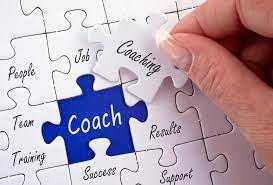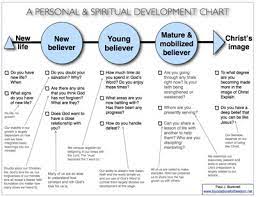The Role of a Leadership Coach in Professional Development
Leadership is a crucial aspect of success in any organization. Effective leadership can inspire teams, drive innovation, and achieve strategic goals. However, not everyone is born a natural leader. This is where a leadership coach plays a vital role in guiding individuals to reach their full potential.
A leadership coach is an experienced professional who works with individuals to enhance their leadership skills and capabilities. They provide personalized guidance, support, and feedback to help clients develop their strengths, overcome challenges, and achieve their professional goals.
One of the key roles of a leadership coach is to help clients identify their leadership style and strengths. Through assessments, feedback sessions, and reflective exercises, the coach helps individuals gain self-awareness and insight into how they lead others. This self-awareness is essential for personal growth and effective leadership.
Another important aspect of leadership coaching is goal setting. A leadership coach collaborates with clients to establish clear and achievable goals that align with their personal values and organizational objectives. By setting specific milestones and action plans, clients can track their progress and measure success along the way.
Communication skills are also a focal point in leadership coaching. A coach helps clients improve their communication style, active listening abilities, conflict resolution techniques, and emotional intelligence. Effective communication is fundamental for building trust, fostering collaboration, and inspiring others to achieve common goals.
Furthermore, a leadership coach assists clients in developing strategic thinking capabilities. By challenging assumptions, exploring different perspectives, and enhancing decision-making skills, individuals can become more adept at navigating complex challenges and driving positive change within their organizations.
In conclusion, the role of a leadership coach is invaluable in supporting professionals on their journey towards becoming successful leaders. Through personalized guidance, goal setting, communication skill development, and strategic thinking enhancement, individuals can unlock their full potential and make a lasting impact in their organizations.
Exploring the Path and Value of Leadership Coaching: A Guide to Success, Earnings, and Distinctions
- How do you become a successful leadership coach?
- How much can you make as a leadership coach?
- Are leadership coaches worth it?
- What is the difference between a life coach and a leadership coach?
How do you become a successful leadership coach?
To become a successful leadership coach, it is essential to first acquire a strong foundation in leadership principles and coaching techniques through formal education, training programs, and certifications. Continuous learning and professional development are key to staying updated with the latest trends and best practices in coaching. Building a solid reputation and credibility as a leadership coach involves gaining practical experience by working with clients from diverse backgrounds, industries, and levels of expertise. Developing excellent communication skills, empathy, active listening abilities, and the capacity to inspire and motivate others are crucial traits for effective coaching. Establishing a strong network of connections within the coaching community and seeking mentorship from experienced coaches can also contribute to one’s success as a leadership coach.
How much can you make as a leadership coach?
When considering the potential earnings as a leadership coach, it is important to note that income can vary significantly based on factors such as experience, expertise, client base, geographic location, and industry demand. Generally, leadership coaches can charge anywhere from $100 to $500 or more per hour for their services. Some coaches may also offer package deals or ongoing coaching programs that can range from a few thousand dollars to tens of thousands of dollars. Ultimately, the earning potential as a leadership coach is determined by the value they provide to their clients and their ability to market themselves effectively in the competitive coaching industry.
Are leadership coaches worth it?
When considering whether leadership coaches are worth it, it’s essential to recognize the significant value they bring to personal and professional development. Leadership coaches provide tailored guidance, support, and expertise that can lead to enhanced self-awareness, improved communication skills, refined leadership styles, and strategic thinking capabilities. The investment in a leadership coach is an investment in oneself and one’s future success. By working with a skilled coach, individuals can unlock their full potential, overcome challenges, and achieve their goals effectively. Ultimately, the impact of a leadership coach extends beyond immediate results to long-term growth and transformation in both personal and professional realms.
What is the difference between a life coach and a leadership coach?
When exploring the distinction between a life coach and a leadership coach, it is important to understand their respective focuses. A life coach typically works with individuals on personal development, helping them set and achieve goals in various aspects of their lives such as relationships, career, health, and overall well-being. On the other hand, a leadership coach specializes in enhancing leadership skills and capabilities within professional contexts. While a life coach may address broader personal growth areas, a leadership coach specifically targets improving leadership qualities like communication, decision-making, strategic thinking, and team management to empower individuals to excel in their professional roles and drive organizational success.




